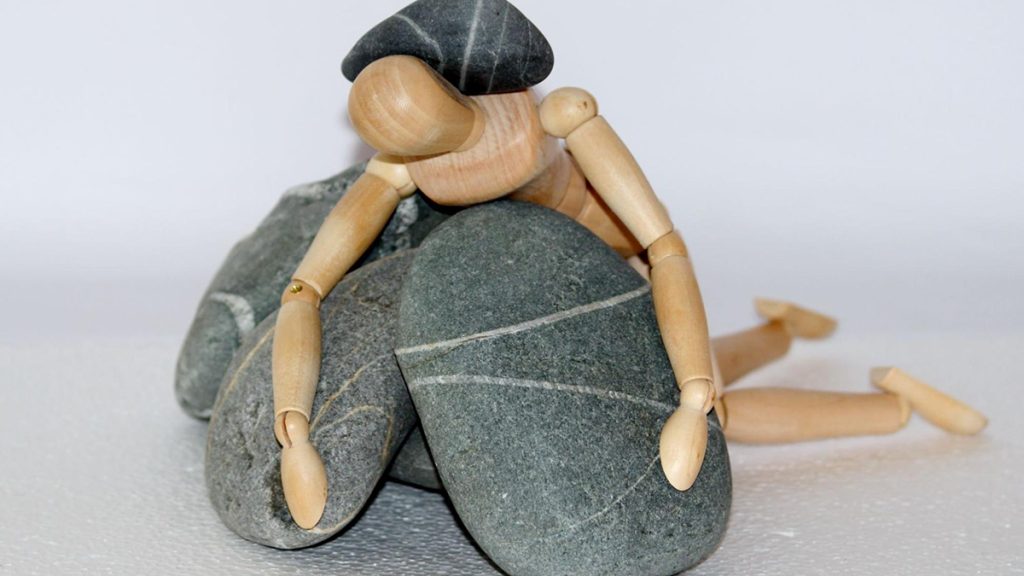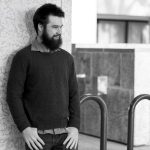
Image: Ulrike Mai | Pixabay
How to manage negativity in the journalism industry
Pessimism is not a business plan
The views expressed in this column are those of the author and do not necessarily reflect the views of the Reynolds Journalism Institute or the University of Missouri.
Once a year, I throw myself a pity party. I lean into my worst negative instinct, I embody the bitter cripple within, and I wallow in my own misery. I look back at the things I have failed at—forget the unpaid invoices, the killed pieces, the rejected pitches—this is a day meant for more dire things: The running I’ll never get to do, the driving I still can’t do, the ableism that society drowns me in from the moment my alarm goes off until the moment the spasms have sapped the energy from me and collapse into bed (or the couch, whichever is closer). On my pity party day, my brain space is not one you want to hang out in.
I allow myself this day because it used to be my everyday and now I see that depression and anxiety, that deep unsettledness, drowning many media workers, staffers and freelancers alike.
I want to examine how pessimism and downright hopelessness have to be processed if we hope to build a sustainable media landscape, but also how disabled people being involved in stories that don’t necessarily involve disability can show us a path forward.
The cold reality
I have a saying that I’ve been leaning into recently, “Pessimism is not a business plan.” It doesn’t matter if you are journalists, novelists, poets, or otherwise; we tend to yearn for the bygone era. How many times have you seen a journalist pining for two decades ago when rates were magically higher and deadlines were magically easier? Nevermind that most of those bylines went to cis, straight, white, old dudes who went to Columbia. Just a minor detail when it comes to journalism discourse.
There is no doubt that the media is facing unprecedented challenges, Meta and Google are quickly marching towards banning news content in Canada to avoid paying creators and two of our media brands are discussing a merger that would further consolidate news – but on the individual level that rampant pessimism doesn’t actually do us any good.
I recently listened to a podcast with James Clear, author of Atomic Habits, and in it he suggests that there are people who look immediately to solutions and there are people who gravitate towards pointing out why you shouldn’t do something. I wish we had more of the former.
The disabled experience
And here again, I see parallels with the disabled experience. One of the first things the medical system does when you get injured is put you on what amounts to suicide watch. For those of us who were born with at least one of their disabilities, mental health is much less talked about and yet is still omnipresent. No GP acts surprised when you wheel into their office and ask for antidepressants or something to qualm your anxieties. Self medication among disabled people is another specter in this realm of existence. Being disabled isn’t easy, being upset is part and parcel, but that doesn’t mean we have to lean into those impulses all the time and collectively.
From a freelance innovation perspective, if you believe that your pitches won’t be accepted, if you believe that hard-earned relationships with editors are a pointless endeavor, if you sink into the abyss that is disability Twitter, it may just become a self fulfilling prophecy.
I’m not here advocating for mindless optimism, but I am here to say that being more intentional with your grief of an imagined future—an imagined future that was/is, inherently, easier—is a more practical approach. Call it…grounded optimism.
But how?
I believe that in order to build a sustainable journalism business we have to start from the position, at least as individuals working within the ecosystem that is media, that we are capable. Journalism training programs—whether that’s journalism schools, student papers, or good old fashioned Googling—have to teach about business as much as they teach about craft. I think that part of the reason so many media workers feel helpless is because they don’t have the skills to navigate the landscape. They’re left to their own devices and so every little slip up feels like a catastrophic failure.
And disabled people don’t have the same 24 hours in a day as their non-disabled counterparts. Hell, I’d argue that nobody has the same 24 hours. Whether it’s because of a medical routine, the brain fog that can come with a condition like Long Covid or ME/CFS, the general malaise of a medication switch, or the physical and emotional overwhelm that is so common with neurodivergent people, there are endless reasons why time might get away from you. I have lost days, weeks, and years to not just my cerebral palsy but my anxiety and panic disorders. I’ve been able to build a business. Those two things are sometimes in opposition, but also sometimes they are in concert.
For an example of this attempt at groundedness, I do my best to not care about when a piece is going to come out. I care about when I will be paid, I care even more for the sources who have agreed to speak with me, but I do try not to tie my self worth to when a particular piece will be published. I also have to be very careful how I receive news about layoffs. On one hand, I feel for those who have lost their jobs, I offer free coaching sessions to those who may want to jump to freelance, I hear and validate their concerns. However, as a business owner I have to be willing to sit with the fact that those outlets are going to shift towards freelancers, National Geographic being the latest example, and that is, inherently, an opportunity. I also have to remember that there is a larger outpouring of support for laid off staffers than there ever is for career freelancers who are muddling through. But again, it is my job to process those feelings, just as it is part of my responsibility to myself to try to process how I’m feeling on any given day about being disabled.
How this translates into coverage
Funny that a guy with a disability that affects his muscles is making this comparison, but grounded optimism requires repetition, much like physical exercise.
This month is Disability Pride Month and one of the pieces of media that is often shared around this time of year is Laura Hershey’s poem “You Get Proud by Practicing”. Published first in 1991, it reads in part:
You do not need
to be able to walk, or see, or hear,
or use big, complicated words,
or do any of the things that you just can’t do
to be proud. A case worker
Cannot make you proud.
Or a doctor.
You only need
more practice.
In journalistic parlance. An editor cannot make you proud, a colleague cannot make you proud, a professor, a teacher, a reader, cannot make you proud. The whims and patterns of the market cannot make you proud. The big hedge fund manager that owns your daily paper cannot make you proud. Even those you share space with in a union cannot make you proud. You have to practice.
In terms of coverage, that practice means that disabled people need to be involved outside of topics that are strictly about disability. Think of your most boring, ho hum story, how can a disabled person’s experiences be interesting. Beyond what they’re going to say, how can you practice making your interviews more accessible? How can you get used to finding comfortable segues into questions of identity? How can you just let, as one of my previous columns suggested, disabled people be boring?
But you can’t do any of that if you’re wallowing in industry-led self pity. Pessimism isn’t a business plan and it’s not a recipe for long-term success, whether you’re disabled or not.

Comments